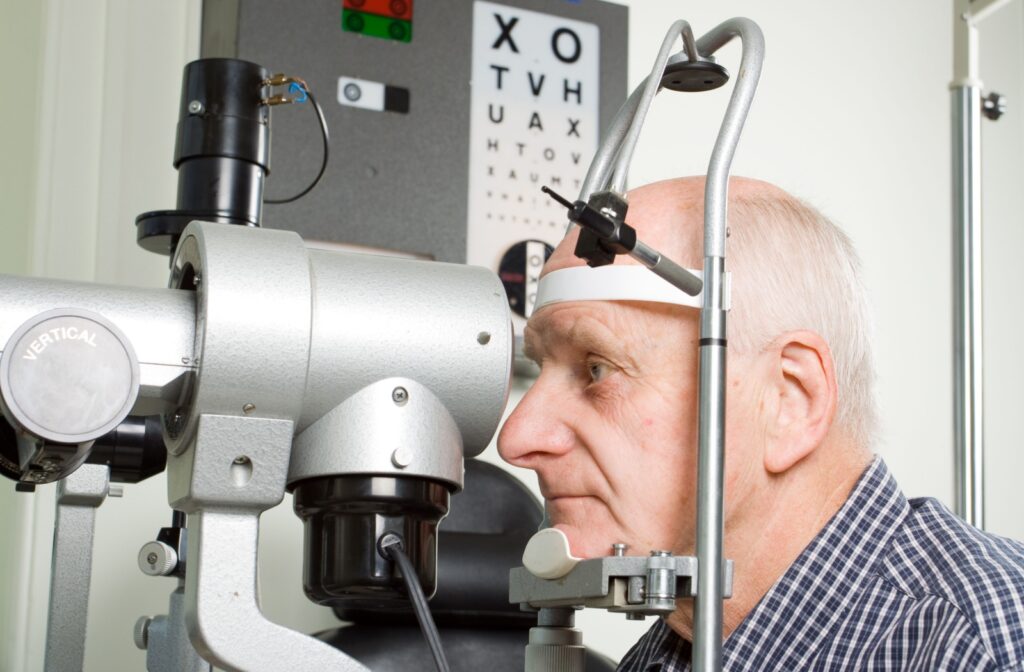Cataracts often develop so gradually that many people don’t realize what’s happening until their vision is noticeably affected. Sunlight feels harsh, colours seem faded, and reading your favourite book can become a challenge.
While cataracts can lead to significant vision loss if left untreated, total blindness is rare. With timely medical care and regular eye exams, most people can manage cataracts effectively and continue to see the world with clarity.
The Gradual Nature of Cataracts
Cataracts tend to form slowly over time, which makes it easy to miss the early signs. You might first notice some mild changes like trouble seeing in low light or increased glare from headlights or streetlamps. As the lenses of your eyes continue to cloud, these symptoms can become more disruptive, affecting your ability to read, drive, or go about your day comfortably.
How quickly cataracts progress depends on several factors, including age, genetics, and underlying health issues. People with diabetes or a history of eye injuries may develop cataracts more quickly. Even environmental influences like long-term exposure to ultraviolet (UV) rays can speed up the process.
Spotting the Early Symptoms
Being aware of cataract symptoms means you’re more likely to take action before your vision is significantly affected. Some of the most common signs include:
- Blurred or cloudy vision
- Colours that appear faded or yellowed
- Heightened sensitivity to bright lights
- Halos around lights, especially at night
Even if your vision seems fine, regular eye exams play an important role in catching cataracts early. Sometimes before you’ve noticed any symptoms at all.
How Cataracts Affect Your Everyday Experiences
As cataracts progress, they can quietly shift how you interact with the world. Some of the ways they interfere with daily life include:
- Everyday routines become harder: Reading, especially fine print, gets more difficult. Driving at night can become stressful due to glare and halos. Even tasks like cooking, sewing, or using your phone may feel more frustrating.
- Moments of joy feel less vivid: Watching your favourite shows, enjoying a walk in the park, or clearly seeing loved ones’ faces might become more difficult.
- Emotional impacts are real: When vision becomes a barrier to independence, this can lead to feelings of isolation or frustration. Social activities may feel harder to participate in, especially when vision loss isn’t openly discussed.
The earlier you address cataracts, the easier it is to preserve your routines, maintain your confidence, and stay connected to the experiences you care about.
The Benefits of Detecting Cataracts Early
Identifying cataracts early gives you more options and more time. With routine eye exams, we can track even subtle lens changes and recommend strategies to help slow their progression, like updating your prescription, adjusting lifestyle habits, or planning for surgery down the line.
Delaying care can let cataracts reach a more advanced stage, which may make treatment more complicated. They can also obscure signs of other conditions like glaucoma or macular degeneration, complicating overall eye health.
Proactive care allows you to respond to vision changes before they interfere with your daily life and helps protect your long-term eye health.

Understanding the Risk of Untreated Cataracts
When left untreated, cataracts can severely limit your ability to see clearly. This can lead to what’s called functional blindness, when vision is so impaired that it becomes difficult or unsafe to perform daily tasks, like reading, driving, or recognizing faces.
Fortunately, cataracts rarely cause total blindness. Instead, they prevent light from properly reaching the retina, leading to increasingly blurry vision. The positive news? Cataract-related vision loss is reversible with surgery, especially when addressed early.
How Surgery Can Restore Your Vision
Cataract surgery is a common, low-risk procedure that offers a way to restore your sight. This surgery involves removing the clouded natural lens and replacing it with a clear artificial lens. Most people experience significant improvements in vision within just a few days.
Although recovery is generally smooth and quick, putting off surgery can allow cataracts to worsen, potentially complicating the procedure. That’s why routine eye exams and timely follow-ups are so important.
Simple Lifestyle Changes That Help Protect Your Eyes
While cataracts are a natural part of aging, you can take steps to help slow their progression and support overall eye health:
- Wear sunglasses with UV protection: Limiting exposure to ultraviolet light helps protect your lenses from early clouding.
- Eat a nutrient-rich diet: Leafy greens, berries, and other antioxidant-rich foods support healthy vision.
- Avoid smoking: Smoking increases your risk of developing cataracts and other eye issues.
- Manage chronic health conditions: Conditions like diabetes can accelerate cataract formation, so consistent medical care makes a difference.
Start Taking Control of Your Vision
Cataracts may be a natural part of aging, but that doesn’t mean you have to accept blurry vision or give up the activities you love. With early detection and the right care, you can maintain your independence and continue seeing the world clearly. Understanding how cataracts progress and recognizing the signs can help you take action before your vision is significantly affected.
If you’ve noticed changes in your sight or it’s been a while since your last eye exam, the team at Total Vision Financial District is here to help. Our comprehensive eye exams can detect cataracts early and guide you through your next steps. Book your appointment today and take a proactive step toward clearer vision.



